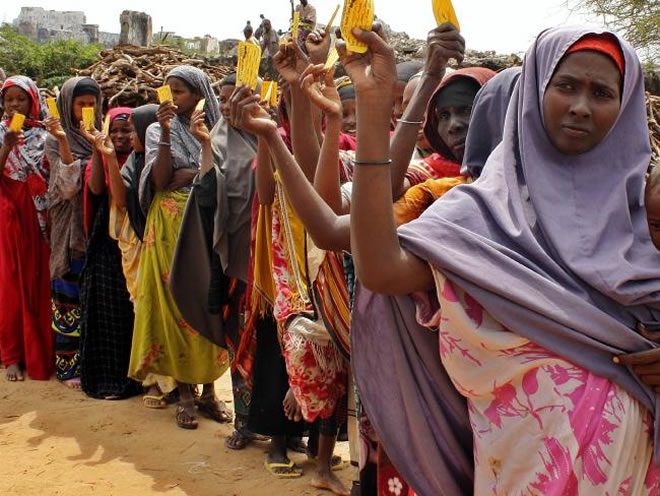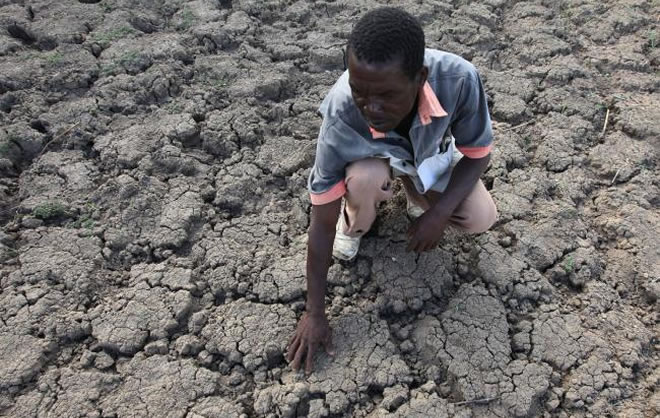
Thursday, July 28, 2016

Drought in Somalia could have led to the conflict in the country. Picture: AFP/Abdurashid Abdulle Source:AFP
YOU wouldn’t think this one issue could lead to war and armed conflict. But a new report shows a surprising threat to peace.
Scientists have found climate change dramatically increases the chances of war breaking out as heatwaves, drought and other natural disasters help push countries to the edge.
Scientists at the Potsdam Institute for Climate Impact Research found a statistical link between armed conflict and extreme weather, especially in those nations which are ethnically diverse.
The study found droughts in Syria and Somalia helped contribute to war, while the prolonged drought in Afghanistan might have contributed further to “fuelling ethnic tensions”.
The report found almost one in four wars erupted in ethnically diverse countries had coincided with an environmental disaster.
While admitting the reasons behind armed conflict are often complex, they said such disasters could fuel “smouldering social tensions”.
German researchers conducted a statical analysis of armed conflict outbreaks and climate disasters between 1980 and 2010.
Interestingly the report authors noted a coincidence rate of nine per cent regarding armed-conflict outbreaks during disasters.
However that figure jumped to 23 per cent in countries which were ethnically divided.
They say the study which forms part of a paper in theProceedings of the National Academy of Sciences journal can help governments design security policies — something which will prove more crucial as the world warms.
According to the report, “the societal consequences of droughts in Syria and Somalia indicate that such climatological events may have already contributed to armed conflict outbreaks or sustained conflicts in both countries”.

Zimbabwe and parts of Africa have suffered massive disasters in recent times. Picture: Tsvangirayi Mukwazhi Source:AP
It also reveals a prolonged drought might have contributed negatively to the ongoing conflicts in Afghanistan, further fuelling ethnic tensions.
Carl Schleussner from the Berlin think-tank Climate Analytics and the Potsdam Institute for Climate Impact Research (PIK) said climate-related natural disasters had a “disruptive potential that seems to play out in ethnically fractionalised societies in a particularly tragic way”.
Researchers directly looked at natural disaster-related economic damage data.
The data was collected by international reinsurance market leader Munich Re and was then combined with information about war.
Study co-author Jonathan Donges said researchers think ethnic divides may serve as a “predetermined conflict line” especially when additional stress factors such as like natural disasters take place.
While acknowledging environmental disasters do not directly trigger conflicts, researchers said the findings implied such events simply exacerbated tensions in conflict-prone areas.
Researchers highlighted North and Central Africa as well as Central Asia as being most at risk of armed conflict breaking out during such disasters.
These areas are both very vulnerable to human-made climate change and are characterised by deep ethnic divides, they noted.